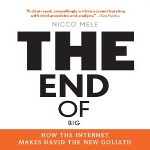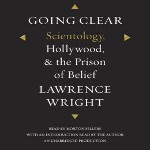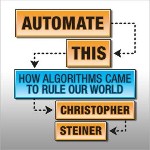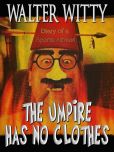 |
Why are newspapers shuttering and big businesses
shuddering? Because David is the new Goliath in the
new open source internet age. According to THE
END OF BIG by Nicco Mele
there are good things coming from this, and
bad things. Among the good is the Arab Spring, and
the flight of the corrupt despot that ran Tunisia.
Being a political strategist and Harvard professor,
Mele talks about the melee happening within cyberspace,
where fundamentally volatile and independent groups
of people gain power over brick-and-mortar institutions,
(and the ramifications of this.) Do we need big institutions
to keep chaos and unaccountability from degrading
society? Mele says that in many cases, yes. There
has to be big in order for certain things to be exist,
like high concept movies and research hospitals. But
in other cases, such as taking on the corruption within
a Congress and Senate now more about maintaining power
with money than anything else (plus Wall Street's
buying of politicians), grassroots efforts to expose
the frauds and kickbacks (while imposing term limits)
may be the only way to save America. This book offers
a broad view of the situation, with both pros and
cons examined, in an effort to avoid the unintended
consequences of rampant technological advances. The
world is becoming smaller and more open, but also
more volatile and unpredictable. Our old policy of
shaping nations through military power projection
is coming to end, not only because we can't afford
it anymore, but because we can't plan or understand.
The world is moving too fast, and cultures changing
daily in art, music, literature, science, and in values.
With fossil fuels going to possibly $14 a gallon in
twenty-five years, big business, dependent on cheap
oil, is doomed. What will replace it small, local,
craft-based businesses, and this even goes for energy,
food production, clothing, and transportation. Sharing
companies are already here, where you can join a network
to rent your idle car or idle room. The promise of
small is survival and a reversal of the degradation
of the planet in the name of profit. Narrated
by Sean Runnette, who is often tapped to
do non-fiction due to his authoritative yet conversational
style, this audiobook is well worth hearing and contemplating
because, in the end, it offers promise to those whose
diet of zombie films and survival shows relates to
a grim outlook on the future. The alternative to this
is individuals working to save their communities,
and thereby the world.
|
|
|
JUMPSTART
TO SKINNY by Biggest Loser coach
Bob Harper is a simple one-hour audiobook
for those who need motivation to lose weight quickly
for a big event (like a wedding or going to the beach
with former college friends.) The audiobook is read
by the author, who sounds like your typical
Pilates coach (or perhaps a male Suze Orman), and
includes a PDF of recipes and exercise routines. The
timeline here is 3 weeks, and the tricks to losing
weight involve rules such as giving up salt, replacing
high caloric foods with others, not eating complex
carbs after a certain hour, and (surprisingly) drinking
coffee (particularly dark roast or espresso.) Co-author
Greg Critser is also author of FAT
LAND and ETERNITY
SOUP. |
|
 |
GOING
CLEAR by Lawrence Wright
has the subtitle "Scientology, Hollywood,
& the Prison of Belief." Read
on audio by Morton Sellers, whose straightforward
narration style and voice is similar to Dylan Baker,
who read the Steve Jobs bio. It is an in-depth examination
of the history and principal characters involved in
creating or spreading the religion around the world.
Wright covers the church's tax exempt classification
with the IRS, and the church's multiple run-ins with
the press. The church denies practically everything
in the book, most vehemently the depictions of humiliation,
physical abuse, and the methods used to attract followers
and keep them obedient. The experiences of Tom Cruise,
John Travolta, Will and Jada Smith, Anne Archer, Paul
Haggis, and many lesser known disciples are laid out
(more or less chronologically), but it is the other
material that makes this the most exhaustive book
yet on the subject. Wright himself is dismissed and
vilified as a liar by the church, yet his reputation
as a staff writer for The New Yorker is augmented
by six previous books of nonfiction, plus the Pulitzer
Prize, the Los Angeles Times Book Prize, and the Helen
Bernstein Book Award for Excellence in Journalism.
Is Wright right, or is Scientology right? To everyone
on the outside, it is obvious, and notable that among
all the bizarre claims made by the church, two facts
stand out: 1) L. Ron Hubbard once stated that the
easiest way to make money was to start a religion,
and his church then later forged documents related
to his supposed war injuries and education. 2) Scientology
claims that the universe is several quadrillion years
old, not merely under 15 billion, (as science has
determined by multiple means.) A quadrillion is either
a thousand million million OR a million million million
million OR a thousand trillion. So while the church
attempts to appropriate science to attack psychiatry,
it isn't "clear" about its own decimal points.
|
|
 |
At age 17, Nick D'Aloisio has become a rich boy genius
who, following in the footsteps of Steve Jobs, is
out to change the world. Will he succeed to the extent
that Jobs did? Time will tell. Like Steve as a teen,
he's self taught, inquisitive, focused on the future,
and determined to extend the limits of technology.
Unlike Steve (except in his later years), he's humble
and not focused on the money. So far. No, there is
no book "Summly." In fact, the app is gone
from Apple's app store, and the algorithm that runs
the summarization program is being absorbed into Yahoo's
systems at their reported $30 million purchase of
the app. Which begs the question: are algorithms already
ruling the world, even Pre-A.I.? Such is the premise
of Christopher Steiner in AUTOMATE
THIS, an audiobook read by Walter
Dixon. Robotic trades on Wall Street have
caused immense damage, but also promise much in detecting
the likelihood of success in human interactions. This
will come in handy in diplomacy, business styles,
and a host of applications from space science to music.
Power comes from knowledge, and new tools for calculation
of data can be used for good or ill, depending on
the motives of the user. Will future wars be automated?
What can't be automated? What shouldn't? Another audiobook
I recommend on this subject is THE
FILTER BUBBLE.
|
|
Finally,
The Mad Scientist's Guide to World Domination
is a tongue-in-cheek collection of stories introduced
by editor John J. Adams, including
offerings by 22 authors such as Daniel H. Wilson
and Diana Gabaldon. Some are funny, some ghoulish,
some foolish. Hand a beaker to an evil genius in a lab,
and you aren't likely to get your typical romance or
mystery story. Chief narrator is veteran Stefan
Rudnicki, with Mary Robinette Kowal and the
always engaging actress Justine Eyre. |
 Your
reviewer's new book, out this month under an assumed
name, is the sports satire "The
Umpire Has No Clothes," an
ebook from Crossroad Press for Kindle, Nook, and iPad. Your
reviewer's new book, out this month under an assumed
name, is the sports satire "The
Umpire Has No Clothes," an
ebook from Crossroad Press for Kindle, Nook, and iPad. |
|